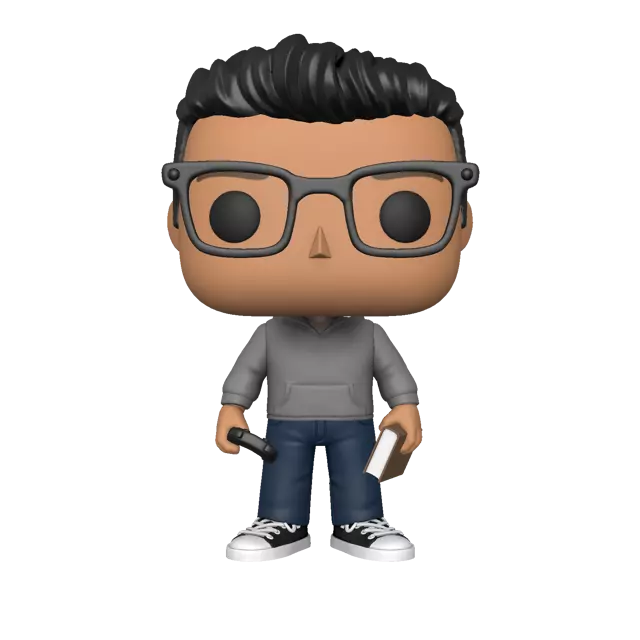When doctors tell a patient “It’s all in your head,” that’s medical gaslighting. Here’s how to address an issue that disproportionately impacts the health of women, LGBTQ individuals and the elderly.
I think gaslighting is a really bad term for this phenomenon. It’s real, and something that needs to be addressed, but it seems to me that gaslighting is intentional, and a way to manipulate someone else. I don’t think that’s what is usually happening when a doctor dismisses symptoms as psychosomatic. They’re wrong, and their biases play a role in being wrong, but I don’t think they are generally manipulating someone to get the desired outcome from them.
From Psychology Today (https://www.psychologytoday.com/us/basics/gaslighting) "Victims of gaslighting are deliberately and systematically fed false information that leads them to question what they know to be true, often about themselves. "
That’s different than the doctor thinking they are exaggerating, or that there are psychosomatic causes behind their stated symptoms, primarily becuase of the “deliberate and systematic” part.
I think I would agree. The behavior seems to be more dismissive than gaslighting (manipulative). I think a patient doubting their own knowledge or experience definitely happens, but it is a secondary effect from the dismissiveness from the medical provider and not usually the intention.
Unless, we consider it intentional so they need to do less work. Considering a person’s subjective information to be fully true and including that in the plan of care takes more effort, versus following the script you know.
This is part of a larger discussion that one of my classes is covering: “Traditional versus Collaborative Care.” Personally, I think the word collaborative gets tossed around too much and English needs more synonyms for it, but the theories kind of make sense. Traditional approach is basically “I’m the doctor, so I know what is best. If you don’t take these meds, you’re being non-compliant.” While the Collaborative approach is more like “What are the goals for your care?”
Some people don’t care what the provider thinks they care about, or aren’t communicating in a way that connects to the patient enough. A relevant podcast I listened to a while ago mentioned that most disagreements are caused by a difference in expectations. If the medical provider is expecting a “compliant” patient with no questions, they are going to be upset when someone is disagreeing with them. And if a patient is expecting a medical provider to listen to them, but the provider ignores them, they will probably be frustrated, belittled, etc.
I’ve witnessed this second-hand with a family member and I’d say gaslighting is an adequate term for what happens to some patients.
Through some combination of weeks/months for a specialist availability, days to weeks for a primary care opening (with a group, not necessarily your specific doctor), and emergency rooms being at capacity, it’s seemingly impossible to get good care for chronic health problems.
ERs and urgent care facilities are not great options for chronic issues, but they’re often all that’s available. And because they aren’t the specialists and they have a narrow charter of work, they can’t really do anything aside from maybe steroids and morphine every once in a while. I do believe that these institutions are being brought down by the sheer volume of work presented to them and are trying to do their best to keep people alive… but it’s disheartening for everybody
I didn’t say it isn’t a problem, but that the doctors aren’t doing it on purpose. They aren’t manipulating people for their own ends. “Gaslighting” implies they are.
It is a real issue that needs to be addressed, as is the issue of the wrong kinds of systems and institutions being used (ER for chronic conditions, like you said, for example).
But the doctors aren’t doing this on purpose like an abuser who wants to keep someone under their thumb.
Modern day doctors are evidence-based. If no evidence and no immediate threat to life, they err on doing the least harm. Giving unnecessary treatments, especially if demanded by patients influenced by crackpots and conspiracy theories is harmful. See: the nutjobs demanding horse dewormer during the Covid pandemic.
The problem is the complete dismissal of subjective evidence as being a valid form of evidence. We have deified objective evidence to the point of hubris, denying the existence of anything that doesn’t show up easily using our current technology. In my experience, it’s less often gaslighting and more often an embarrassing lack of epistemological humility and a pretense that we are have somehow reached the pinnacle of medical technology already and have nothing left to learn.
We’re here to treat patients, not test results. If a patient is reporting that they are experiencing distressing symptoms or that something is making them feel better or worse, they deserve to be taken at their word. Ignoring them because our current tests are not sophisticated enough to identify everything invalidates their subjective experience, and that’s not patient centered care.
This is the real issue when people are talking about medical gaslighting. Every endometriosis patient being told for years on end that their debilitating symptoms are “normal” period pain. The embarrassing statistics on how long it takes someone with an autoimmune disease to be correctly diagnosed.
We’ve become too impressed with our technological toys and forgot how to see the real human beings in front of us.
I won’t say every doctor is innocent of ignoring legitimate concerns they hear from patients but your argument is missing context. Subjective symptoms from a new patient or one I know doesn’t fret over every somatic sensation they get in their body? Sure, I’m looking into that deeper. Coming from my known anxious, health obsessed patient who wants evening done all the time? Nope, that’s a conversation and possibly some blood work just in case/to reassure. I can’t give everyone a million dollar workup, it’s inefficient use of resources and usually unwarranted. You have to listen to your patients, they give you a lot of useful information, but you have also have to be healthily skeptical at the same time.
Yes, but that’s different from subjective evidence and I think that’s part of the problem. There’s a difference between somatic symptoms and subjective evidence.
We differentiate between the two all the time without explicitly identifying it as such. “Patient says the feel a lot better this morning” vs. “patient says they still feel rotten” is valid subjective evidence that we really do take under consideration when evaluating treatment response.
Onset, duration, aggravating and alleviating factors, and consistency of reported symptoms are all things that distinguish evidentiary subjective reports from somatic ones. I’ve walked psychotic patients through things that were distressing to them that I knew were somatic. And I’ve caught “real” things where the patient subjective report was really the only indication we had. It IS possible to differentiate.
Granted, this demands more time than the corporations we work for would like to permit us to spend with our patients. Which is a huge part of the problem that we should all be protesting.
My wife has a conversion disorder. Her NP said at the outset she thought it “was all in her head” which while a terrible choice of words she was on the right track, and she was the one that requested all the testing and specialists that eventually got us to an official diagnosis.
I understand that there is a huge problem with women and minority groups being under diagnosed and under treated especially in the US, but the blanket statement of “if your doctor says X, they’re gaslighting you” is erroneous. Sometimes it may be a well meaning person that is having a bout of bad bedside manner.
So now we’re saying that random people know better than doctors? Stop going then, it makes more room for the people with actual problems that will ACTUALLY LISTEN TO THE ADVICE. Better even, use ChatGPT instead, it’s made to tell you what you want to hear after all.
man doctors are obnoxious everywhere u go. If there is a job that should be replaced by ai, its theirs
AI will just end up being the worst habits of doctors because of arbitray insurance or other policy influences dismissing valid complaints and misunderstandings that the good doctors figure out how to identify over time.
Yes, some doctors are actually really good! AI won’t ever do as good of a job as those doctors.
I don’t know why you think an AI can do a doctor’s job…








